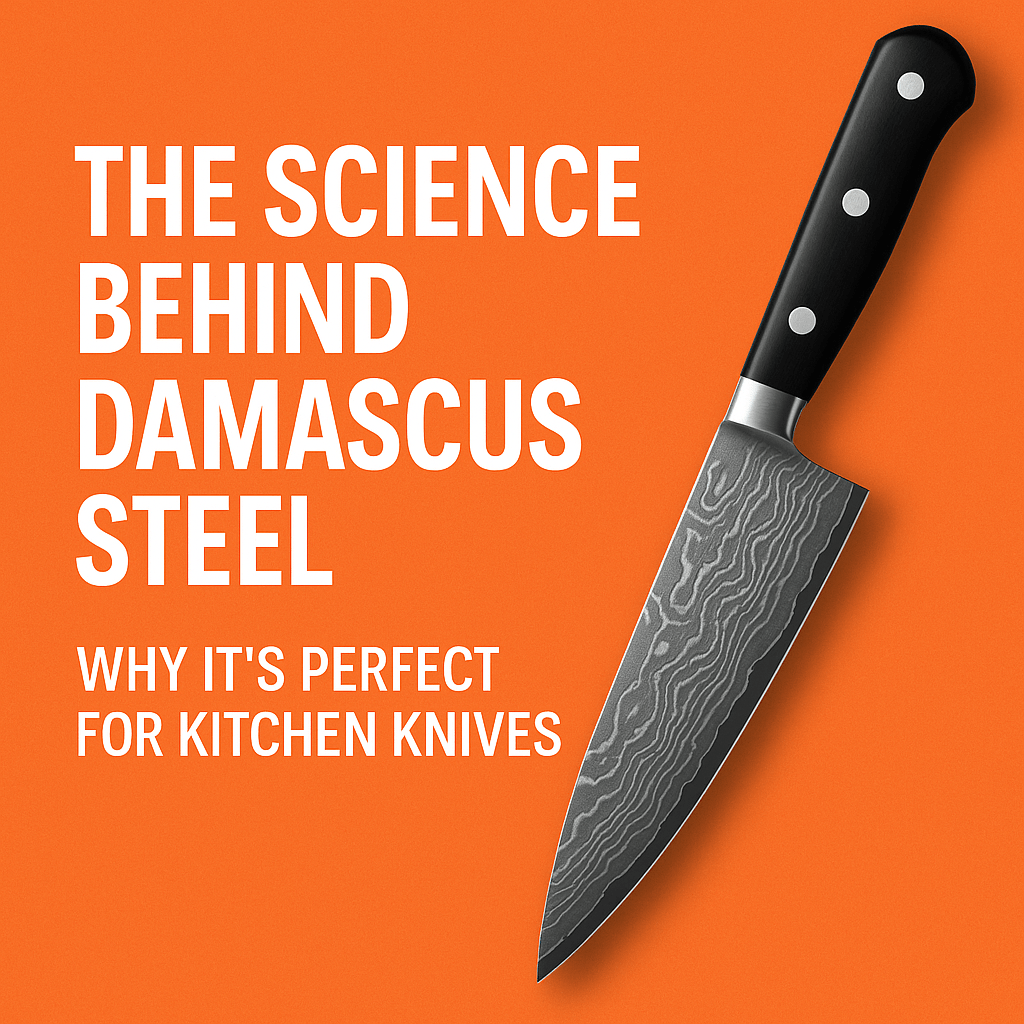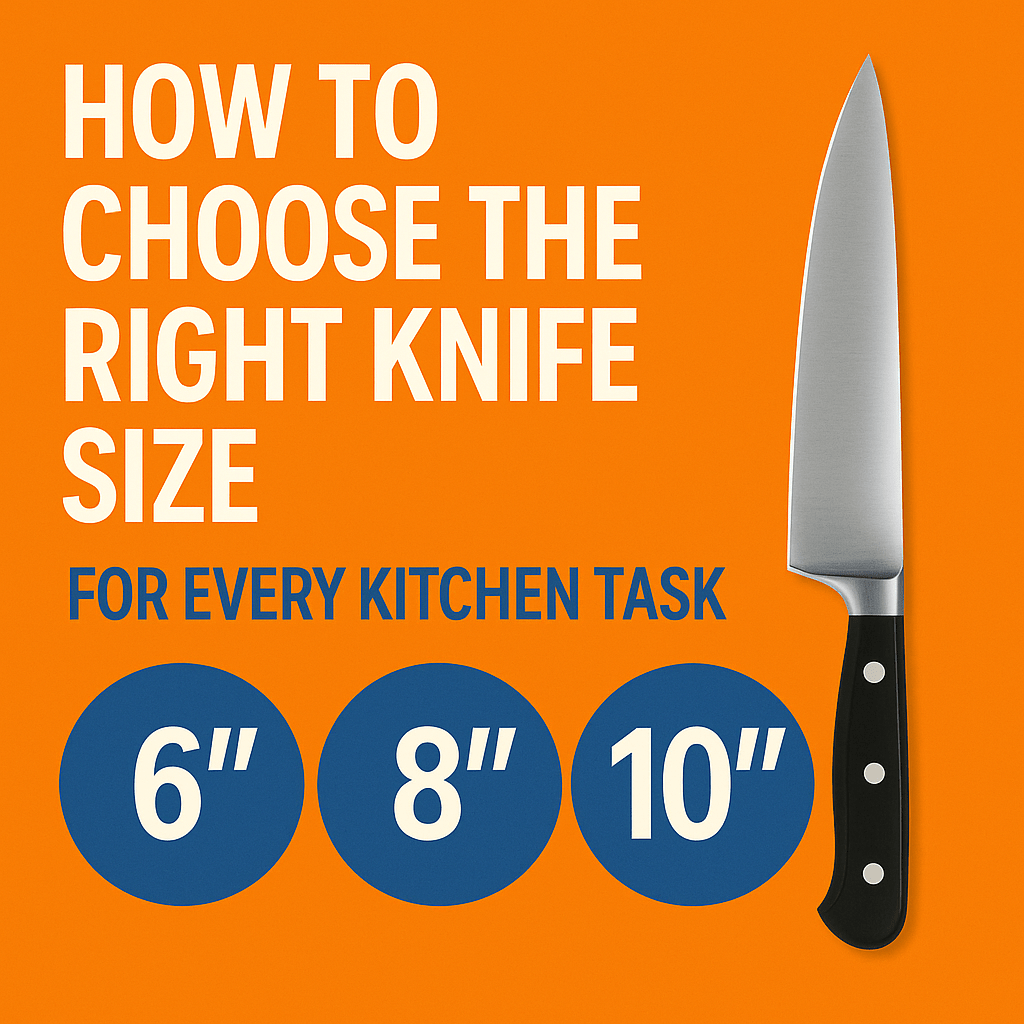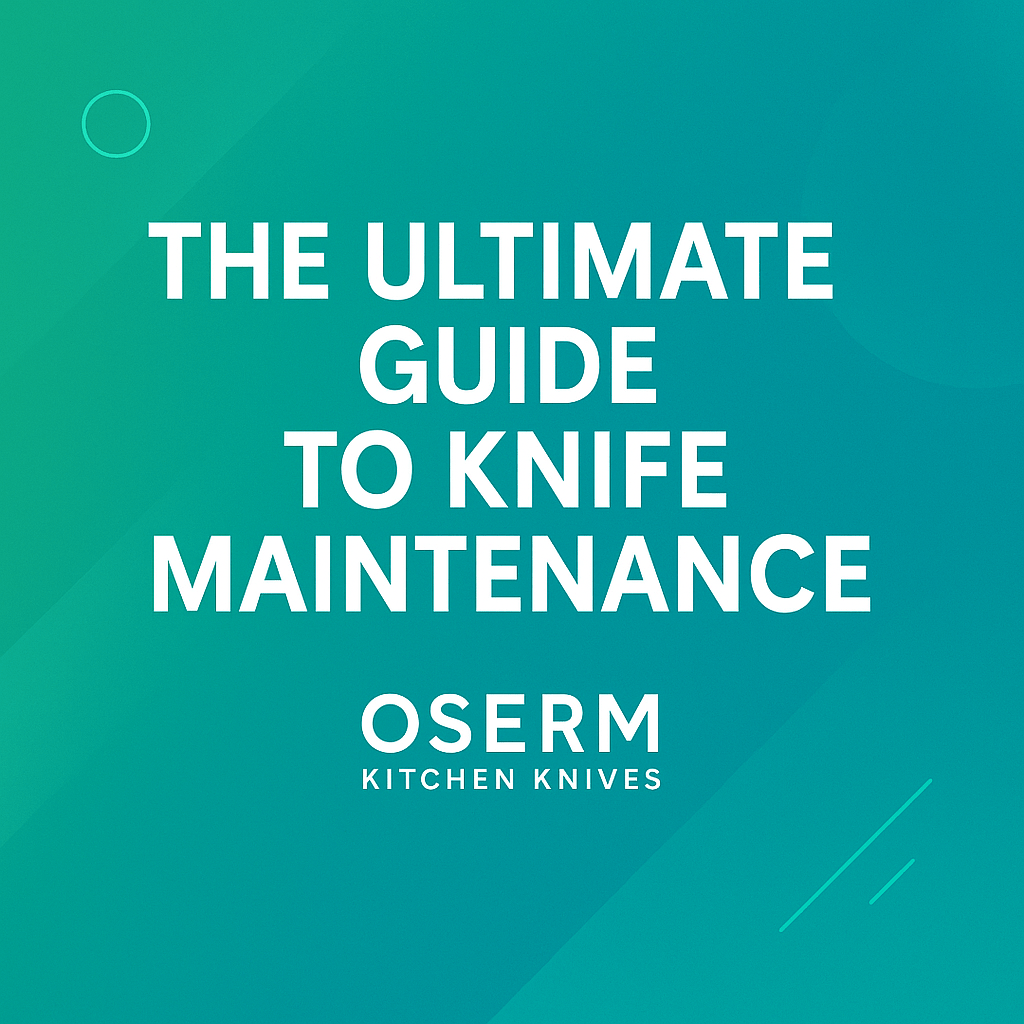
The Science Behind Damascus Steel: Why It’s Perfect for Kitchen Knives
Few materials in the world of blades capture as much admiration and mystery as Damascus steel. Known for its intricate, wavy patterns and legendary sharpness, Damascus steel has been the choice of skilled craftsmen and warriors for centuries. Today, this ancient material is making a strong comeback in the world of kitchen knives — and for good reason.
At OSERM, we take the art and science of Damascus steel seriously. Our Japanese-style kitchen knives are designed not only to be beautiful but also to deliver unmatched performance in the kitchen. Let’s explore the science behind Damascus steel and why it’s one of the best materials for crafting chef knives.
🔍 What Is Damascus Steel?
Damascus steel originally referred to a type of steel made in the Middle East over a thousand years ago, known for its distinctive flowing patterns. The ancient version was created by forging and folding high-carbon steels with varying compositions, resulting in a blade that was both strong and flexible.
Modern Damascus steel is typically made by layering two or more types of steel — usually a hard, high-carbon steel for edge retention and a softer, more flexible steel for durability. These layers are repeatedly folded and forged, creating the iconic patterns that resemble rippling water or flowing wood grain.
⚙️ The Science Behind the Beauty
While the patterns of Damascus steel are undeniably beautiful, they’re not just for show — they’re the visible evidence of a material engineered for superior performance. Here’s why Damascus steel excels in kitchen knives:
- Layered Strength: Multiple steel layers combine the best properties of each — a hard, sharp edge with a resilient, impact-resistant core.
- Microstructure Advantage: Folding and forging create a fine-grained structure that enhances edge retention and sharpness.
- Corrosion Resistance: Many Damascus steels use stainless alloys in the outer layers, helping the blade resist rust and staining.
- Flexibility: Unlike brittle blades, Damascus knives have enough flexibility to withstand regular kitchen use without chipping easily.
🔪 Why Damascus Steel Is Perfect for Kitchen Knives
1. Exceptional Sharpness
The hard core of a Damascus knife allows it to hold a razor-sharp edge for longer periods. This means less frequent sharpening and more consistent performance, especially important for precision cutting tasks like sashimi slicing or vegetable chiffonade.
2. Superior Edge Retention
Thanks to the hard, high-carbon core, Damascus knives stay sharp far longer than typical stainless steel knives. For busy home cooks or professional chefs, this means fewer interruptions to hone or sharpen the blade.
3. Durability
Layering steel types gives Damascus knives resilience — they’re less likely to chip or break under normal kitchen conditions. This makes them a worthwhile investment that can last for years with proper care.
4. Comfortable Handling
Damascus steel is not only functional but often paired with ergonomic, well-balanced handles. OSERM Damascus knives are designed to reduce hand fatigue, making long prep sessions much more comfortable.
5. Stunning Aesthetic
The elegant water-like patterns of Damascus steel add a touch of artistry to any kitchen. Each knife is unique, as no two patterns are ever exactly the same. Owning a Damascus knife is like owning a functional piece of art.
🧪 Modern Innovations in Damascus Steel
While traditional Damascus steel was once lost to history, modern metallurgists have revived and improved the technique. Today’s Damascus steel can be paired with advanced stainless alloys, precision heat treatments, and laser-cutting technology for even better results.
OSERM blends the heritage of Japanese knife-making with modern Damascus forging to produce knives that are sharper, stronger, and more resistant to wear than ever before.
💡 How to Care for Your Damascus Steel Knife
To maintain the beauty and performance of your Damascus knife, follow these tips:
- Hand wash only — avoid dishwashers, which can cause corrosion and handle damage.
- Dry thoroughly after washing to prevent water spots.
- Store on a magnetic strip or in a knife block to protect the edge.
- Hone regularly and sharpen when needed to keep the blade at peak performance.
Tags: damascus steel knives, japanese damascus chef knife, benefits of damascus knives, OSERM kitchen knives, knife materials guide






